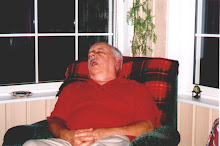The Drug Scene
I don't do drugs. Some years ago I did pot a few times. The first couple of times it was a hoot, but subsequently the effect was less pleasant, it just made me feel weird. In one instance I imagined being Plastic Man, I was elongated like taffy. I didn't like it, and I haven't tried it since, except for the occasional drag if a joint was passed around socially. I haven't tried any other drug, mainly because I don't see the need. A person should be able to get by without artificial stimulation.
Now that sounds very moralistic, I know, and I shouldn't be the one to talk because I've been high on alcohol many times, but it was never because I "needed" it to drown my sorrows or "settle my nerves". I just had one too many, period. I rarely have more than one or two beers or two glasses of wine, or the occasional brandy. My days of heavy imbibing are long behind me.
But to get on with it. The drug laws of any country I know are just stupid, as most people would agree. Those laws don't stop drug use (prohibition never works and often has a contrary effect) but merely ensures that drugs obtained illegally can be polluted with foreign substances often dangerous. Government acceptance and regulation, as with alcohol and tobacco, would be preferable. Which brings me to an article I ran across recently. The prestigious British medical journal, The Lancet, published a "landmark study" which listed tobacco and alcohol as more dangerous than pot and ecstasy. They studied a list of twenty substances and rated them on three factors, 1.) physical harm to the user, 2.) potential for addiction, 3.) impact on society.
Topping the list are heroin and cocaine. Next come barbiturates, street methadone, and alcohol. Tobacco comes in ninth, cannabis eleventh and ecstasy is near the bottom of the list. See the article here. It was surprising to see ecstasy so low on the list. It turns out that ecstasy may have a beneficial effect on Parkinson's Disease.
You can see a long article on ecstasy here.
Now for alcohol. Government liquor stores at one time made it a chore to buy beer or liquor. A form had to be filled out. The clerk would disappear and come back with a bottle in a paper bag, you would then sneak out and drive straight home. A license had to be purchased in some jurisdictions. My, how that has changed. Governments have discovered what revenues can be had from booze, (And gambling.) so drinking is encouraged in various ways, and the consequences are not all salutary. While the LCBO, Liquor Control Board of Ontario advises its patrons to "drink responsibly", it does all it can to push its product.
Now that sounds very moralistic, I know, and I shouldn't be the one to talk because I've been high on alcohol many times, but it was never because I "needed" it to drown my sorrows or "settle my nerves". I just had one too many, period. I rarely have more than one or two beers or two glasses of wine, or the occasional brandy. My days of heavy imbibing are long behind me.
But to get on with it. The drug laws of any country I know are just stupid, as most people would agree. Those laws don't stop drug use (prohibition never works and often has a contrary effect) but merely ensures that drugs obtained illegally can be polluted with foreign substances often dangerous. Government acceptance and regulation, as with alcohol and tobacco, would be preferable. Which brings me to an article I ran across recently. The prestigious British medical journal, The Lancet, published a "landmark study" which listed tobacco and alcohol as more dangerous than pot and ecstasy. They studied a list of twenty substances and rated them on three factors, 1.) physical harm to the user, 2.) potential for addiction, 3.) impact on society.
Topping the list are heroin and cocaine. Next come barbiturates, street methadone, and alcohol. Tobacco comes in ninth, cannabis eleventh and ecstasy is near the bottom of the list. See the article here. It was surprising to see ecstasy so low on the list. It turns out that ecstasy may have a beneficial effect on Parkinson's Disease.
You can see a long article on ecstasy here.
Now for alcohol. Government liquor stores at one time made it a chore to buy beer or liquor. A form had to be filled out. The clerk would disappear and come back with a bottle in a paper bag, you would then sneak out and drive straight home. A license had to be purchased in some jurisdictions. My, how that has changed. Governments have discovered what revenues can be had from booze, (And gambling.) so drinking is encouraged in various ways, and the consequences are not all salutary. While the LCBO, Liquor Control Board of Ontario advises its patrons to "drink responsibly", it does all it can to push its product.

